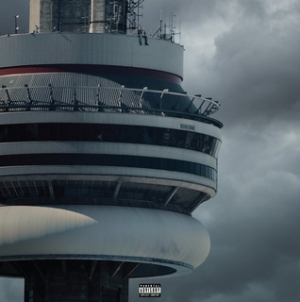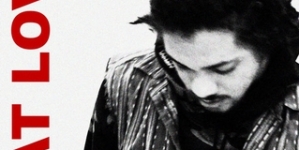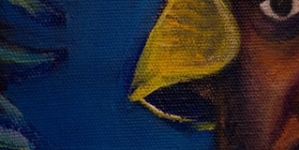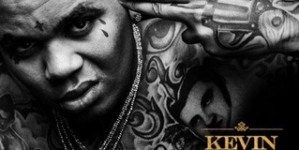-
Coming Straight From Austin Texas With New Single “Pretend” - January 9, 2021
-
Travis Scott Releases His First Single of 2019 [VIDEO] - October 4, 2019
-
Lil Kim Releasing First Album In 14 Years - October 4, 2019
-
Three Charged With Providing Mac Miller With Deadly Drugs - October 4, 2019
-
Lizzo Makes History With New Billboard Record - September 24, 2019
-
Rap-A-Lot Record’s J Prince Has A Lot To Say About 6ix9ine - September 24, 2019
-
Philly Approves Meek Mill Weekend - March 14, 2019
-
T.I.’s Sister, Precious Harris Had Died - February 22, 2019
-
Jussie Smollett Remove From Empire’s Final Episodes - February 22, 2019
-
Drake & Jennifer Lopez Have Been Spending Quite Some Time Together - December 21, 2016
AMTHST: Euphoria EP
While the boundary between hip-hop and electronic music has always been permeable, in recent years it’s begun to show signs of dissolving completely.
While the boundary between hip-hop and electronic music has always been permeable, in recent years it’s begun to show signs of dissolving completely. Trap-influenced drum patterns dominate electro-pop, spaced-out synths are de rigueur in rap, and hybrid producers have become some of electronic music’s biggest stars. As what’s left of the wall crumbles, we’re seeing more extended collaborations between rappers and electro-pop artists, like Danny Brown’s work with Purity Ring or Big Boi and Phantogram’s Big Grams.
AMTHST is the latest partnership in this mold. It finds Bay Area rapper and producer Droop-E teaming up with Ramona Gonzalez, the singer/songwriter behind L.A. synth-pop act Nite Jewel. This isn’t the first time the pair have linked up–Droop-E’s 2013 song “N the Traffic” featured Gonzales on the hook—though this time around, they’re working together more closely, collaborating on the production as well as the songwriting. Euphoria, their debut EP under the name AMTHST, is a record that revels in distance: the distance between hip-hop and electro-pop, the distance between men and women, the distance between L.A. and the Bay.
Droop-E and Gonzales do have plenty in common musically, though, and they quickly find a sonic middle ground on Euphoria, marrying the laid-back bounce of Bay-Area rap to the gauzy atmospherics of Nite Jewel’s early work. This is nocturnal music, built from layers of synths, wet snare hits, and plenty of echo. The songs unfurl at a languid, practically chopped-and-screwed pace, and both Droop-E and Gonzalez luxuriate in the production, trading off verses and choruses with an easy cadence.
While Droop-E and Gonzalez are a natural fit as musicians, Euphoria’s most compelling moments leverage their divergent vocal approaches. “Thug Passion,” a smoldering trip-hop number, casts the pair as two lovers talking past one another. “You don’t call me back,” Gonzales sighs. “You don’t know me.” Droop-E, meanwhile, mutters noncomittally in the background, suggesting, “We can just chill out, relax.” “I Wonder” flips this script: Droop-E is in full pursuit, thirstily spitting game, while Gonzales eludes his advances. “You tell me lots of things/ What do they really mean?/ The more I wonder,” she chirps back. Both of these songs feel like nuanced counterpoints to the one-sided narratives that drive most hip-hop and pop songs—they’re conversations, not accusations.
“Over Zone,” a meditation on intoxication and its consequences, goes further yet, digging into the ways that gender mediates our pursuit of euphoria. On first listen, the song recalls a similar anthem—its pitched-down call-and-reponse refrain is pretty similar to that of Kendrick Lamar’s “Swimming Pools (Drank)”—but merits a closer reading. During a set piece in the song’s midsection, Gonzales drunkenly attempts to leave a club—when she’s stopped, she insists that she just needs some fresh air. “Nah, I saw you stumbling out there, you’re not fooling anyone,” a sinister voice responds, as water-logged synths close in around the track. The scene then switches to Droop-E, who finds himself in a similar predicament, careening down a hallway in search of a place to vomit. “Give me some bread and some spring water and I’ll be cool, shit,” he raps—a bit of bravado, perhaps, but also a tacit acknowledgement that his safety isn’t in question despite his drunkenness.
For a five-song EP, Euphoria packs quite a bit of depth. Both Droop-E and Gonzalez have managed to preserve what makes them distinctive while working in tandem; the reward here lies in examining the seams where two very different approaches collide. Admittedly, there is a background music quality to these songs—the consistently drowsy pace holds the EP back from fully engaging the listener at times—though that slow simmer suits the subject matter well. Nonetheless, Euphoria’s five songs effectively evoke the distance of a strained conversation, even if they are clearly the product of a deep mutual understanding.

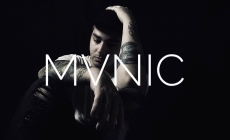
![Travis Scott Releases His First Single of 2019 [VIDEO]](https://www.guttaworld.com/wp-content/uploads/2019/10/Travis-Scott-performs-live-in-2019-230x140.jpg)


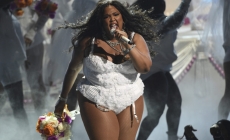

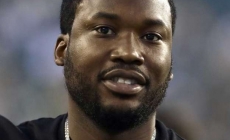
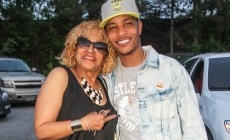





![Travis Scott Releases His First Single of 2019 [VIDEO]](https://www.guttaworld.com/wp-content/uploads/2019/10/Travis-Scott-performs-live-in-2019-80x80.jpg)



